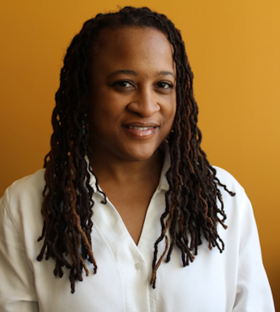In 1997, I was editing a newspaper and managing a magazine for an environment, corporate responsibility and consumer advocacy non profit in Washington, DC. One day my boss came to me and said, “You should go work for this foundation in Atlanta. All you have to do is talk on the phone and write some memos. You’ll be fine.” At that point I was just looking for a living wage. I was making just under $13,000 per year, which even in 1997 was hard to get by on. I had no idea what I was getting into. But this Black girl from the west coast who was passionate about the environment and social justice – issues which did not seem to overlap in 1997 – moved from DC to Atlanta to start a career in philanthropy. And to make a decent salary with benefits. Let’s set aside the entirely too obvious, ‘Were there no Black people in Atlanta qualified for this position?’ question for another time.
What I ended up getting into was a soul-crushing exercise in psychological and emotional gymnastics of trying to build authentic relationships with and move money to the most impacted folks: people of color who looked like me. And doing this from inside a system lacking any accountability whatsoever and rigged to maintain the privileges of already ahead-of-the-curve white people in general; but specifically, to maintain the hegemony of wealthy white men. I hope I don’t need to recite the morass of research and statistics – both about who holds the power in philanthropy and where the money goes -- that demonstrate these facts. But for a quick primer, spend some time with the National Committee for Responsive Philanthropy.
We are in a new moment in philanthropy, you, me, here today in 2021. We have an opportunity. And a responsibility. And I am so excited to have been on a journey with the Durham, NC-based Laughing Gull Foundation (LGF) over the last several years. These are four white women, three of whom are from Lynchburg, VA, with inherited wealth. Polite and very southern; and with a reparations analysis. If you had asked me even five years ago if I would use polite, southern and reparations in the same sentence I would have laughed out loud. But we are in a moment where we all can and must do better.
LGF is launching a new Climate & Environment grantmaking program this year, with an inaugural docket of $500,000 for 2021. The goal is to pay out up to $2 million per year by 2023 in the Southeastern US. When we talk about land preservation in the South, we start with Heirs Property. When we look to advocacy and systems change work, we look to organizations led by and working for the most impacted communities – BIPOC-led organizations and communities. Our first grant-making docket considerations comprise seven organizations, six of which are led by BIPOC people in the South and who are from the most impacted communities. The grants will be general operating support, because we trust our grantees to know where they need to spend; and we renew multi-year commitments because we know change doesn’t happen in one- and two-year cycles.
The HEFN community has been vital to my sanity in environmental grantmaking over the years. Kat Gilje’s winter blog post on Racial Justice was a beacon for me, speaking directly to what LGF’s board and staff are openly grappling with: naming and visibilizing racism and white supremacy; being teachable and humble in their journey; centering authentic relationships and bringing their whole selves into this process. And for the first time in my 24-year philanthropic career, inviting my whole Black, female, queer self into the room.
What are you doing to meet the moment?
Cynthia Renfro is part of HEFN’s Participatory Grantmaking Community of Practice, where we are living into this new moment in philanthropy.


